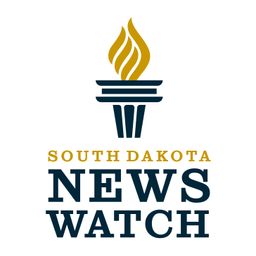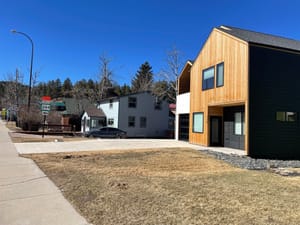What started as a cavalcade of petition campaigns for South Dakota’s November 2024 ballot has become more manageable for voters to follow.
Of the eight citizen-led ballot questions approved for circulation, three will definitely meet the signature threshold to make the ballot, according to News Watch analysis and interviews with political leaders and ballot sponsors.
Those three measures are the constitutional amendment to legalize abortion, the constitutional amendment to establish open primaries and the initiated measure to eliminate South Dakota’s sales tax on groceries. That comes with the caveat that legal challenges could still occur, particularly with the abortion bid.
The latest effort to legalize recreational marijuana in South Dakota is making a late surge in signature gathering and also has a chance to qualify for the 2024 ballot, according to News Watch analysis of all the petition campaigns.
“People are discovering how hard it is to actually get something on the ballot,” said South Dakota Open Primaries chairman Joe Kirby, a Sioux Falls businessman and government reform advocate. “Getting tens of thousands of signatures, especially given South Dakota weather, is not an easy task.”
The citizen-led measures will be joined by one legislative resolution from the 2023 session, a proposal to change outdated male-only references to South Dakota’s governor and other officials in the state constitution and statutes.
Legislators also passed Senate Joint Resolution 501 during the current session, an effort to amend the constitution to impose work requirements for Medicaid eligibility.
That means five or six ballot questions will be put to voters in the general election on Nov. 5. That's on par with the average number (5.6) qualifying for on-cycle South Dakota ballots since 2000. The highest numbers of certified ballot measures during that period were 11 in 2006 and 10 in 2016.
The number of verified signatures needed to qualify initiated measures for the ballot is 17,508, which represents 5% of the total vote for governor in the last gubernatorial election. Constitutional amendments require 35,017, which is 10%.
The deadline to submit signatures is May 7, and they must be certified by the Secretary of State’s office before officially making the ballot. In the case of the abortion amendment, it’s anticipated that legal challenges to certification will necessitate judicial review.
Here’s a look at the status of this year's citizen-led ballot efforts:
Likely headed for 2024 ballot
Open primaries
The campaign to establish “top-two” primaries for governor, Congress and state legislative and county races is well-funded and largely non-partisan, guided by political veterans representing Republicans, Democrats and Independents.

It’s also staying under the radar as the proposed abortion amendment draws most of the headlines and counter-messaging.
“It’s nice to have more controversial issues out there,” said Kirby. “But I think what’s really happened for us is that the stars have aligned. Republican leadership in South Dakota sees this as a solution to some of their problems.”
The theory is that open primaries, rather than incentivizing candidates from taking extreme positions to win a partisan primary, will help lower the volume to produce officeholders more reflective of the general electorate.
This comes at a time when ultra-conservative factions such as the South Dakota Freedom Caucus have gained more traction within the Republican ranks.
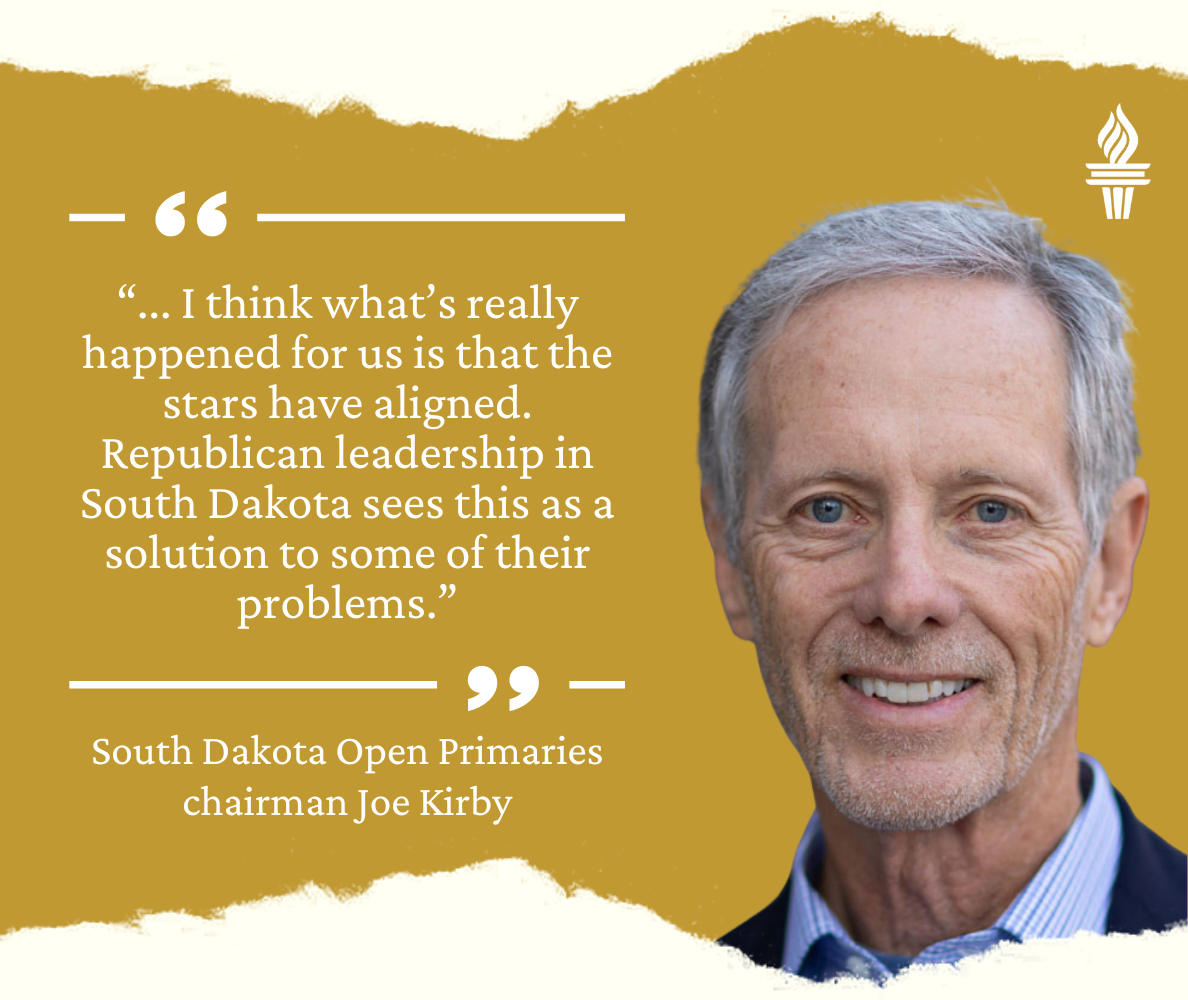
Freedom Caucus chairman Aaron Aylward, a state representative from Harrisburg, told News Watch in January that the proposal would essentially create "two general elections in South Dakota" and thus was unnecessary.
“If the backers of this amendment are worried about having options at the ballot box, why isn’t the focus placed on getting people from all parties ready for the general election?” Aylward said.
The only other public opposition so far has come from South Dakota Republican Party chair John Wiik and U.S. Sen. Mike Rounds, who told News Watch in a March 1 statement that “our current primary system has served us well."
Republicans Sen. John Thune and Rep. Dusty Johnson told News Watch that they will not be taking a public stance on the proposed amendment.
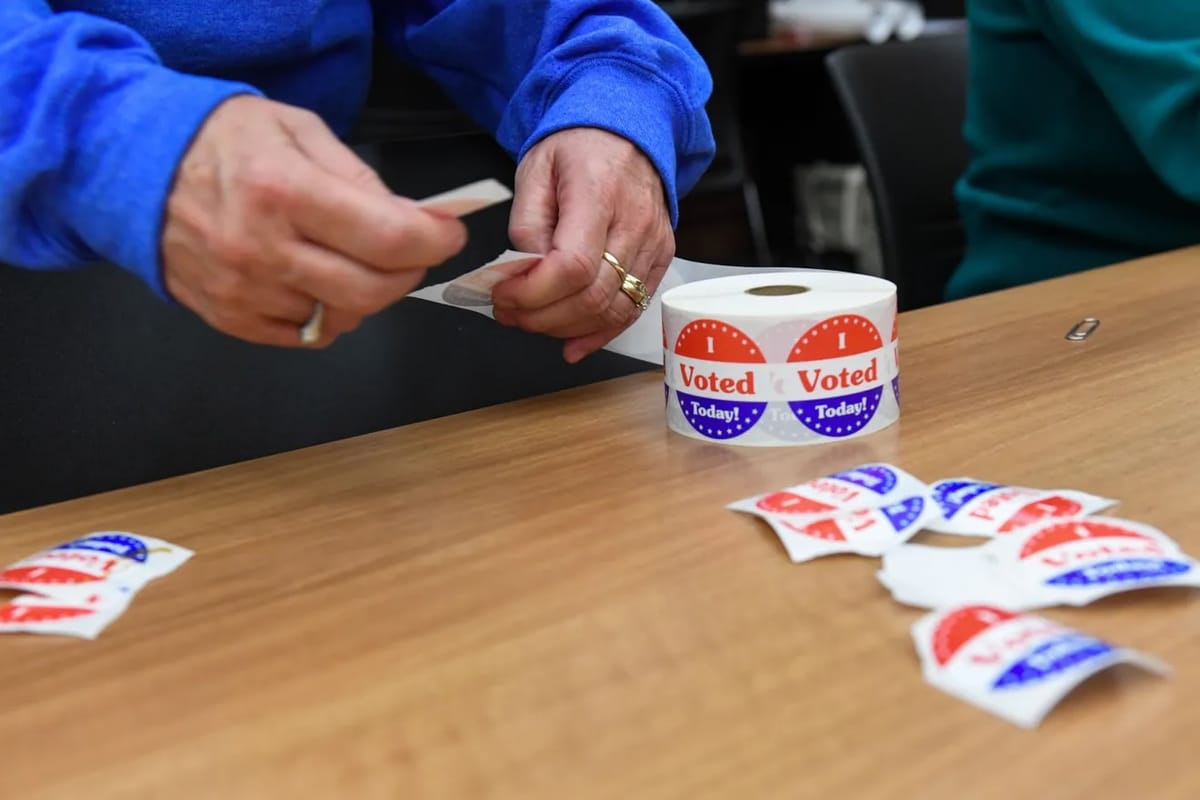
South Dakota Open Primaries has collected about 42,000 signatures as of March 1 and expects to meet its goal of 50,000, said Kirby. The group has several dozen volunteers but gets the “vast majority” of its signatures using paid circulators.
The petition drive has been boosted by the support of Unite America, a nonprofit based in Denver that advocates for election reform and has contributed about $450,000 to the open primary effort in South Dakota.
Abortion amendment
There has been plenty of political friction surrounding this effort to reverse the state's near-total abortion ban and enshrine access to abortion in the South Dakota Constitution.
Opposition has come from expected places, such as a "Decline to Sign" campaign from anti-abortion group Life Defense Fund and legislative efforts to allow petition signers to withdraw signatures that have already been submitted to the Secretary of State for certification.
Dakotans for Health, the progressive group behind the petition, told News Watch that it will likely file a lawsuit if House Bill 1244 allowing signature withdrawal passes. Groups such as the League of Women Voters of South Dakota have questioned the bill's constitutionality and emergency clause, which would allow it to take effect immediately and not be referred to voters.
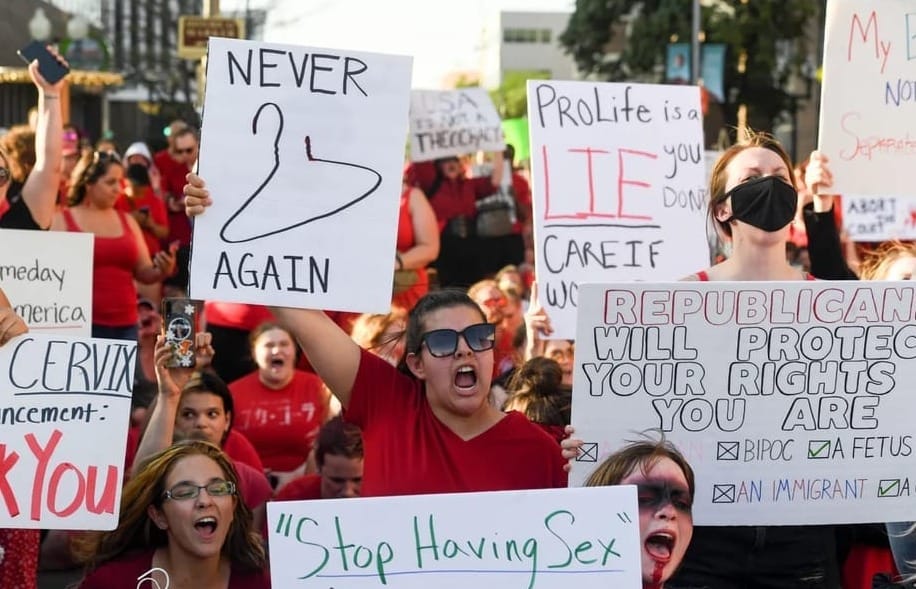
The abortion amendment also has received pushback from unexpected sources. Organizations such as Planned Parenthood North Central States and American Civil Liberties Union of South Dakota, steadfast advocates of abortion rights, have expressed concern about the amendment's language and timing.
Getting enough raw signatures won't be a problem for Dakotans for Health, which has used volunteer and paid circulators to compile more than 50,000 signatures as of March 1, according to co-founder Rick Weiland. He added that most of those signatures have gone through in-house validation as the group prepares for legal challenges as part of the certification process.
"There's a pretty narrow strike zone, and we're well aware of that," said Weiland, referring to the heightened scrutiny the amendment faces. "But we're confident we'll make it and the voters will get a chance to decide."
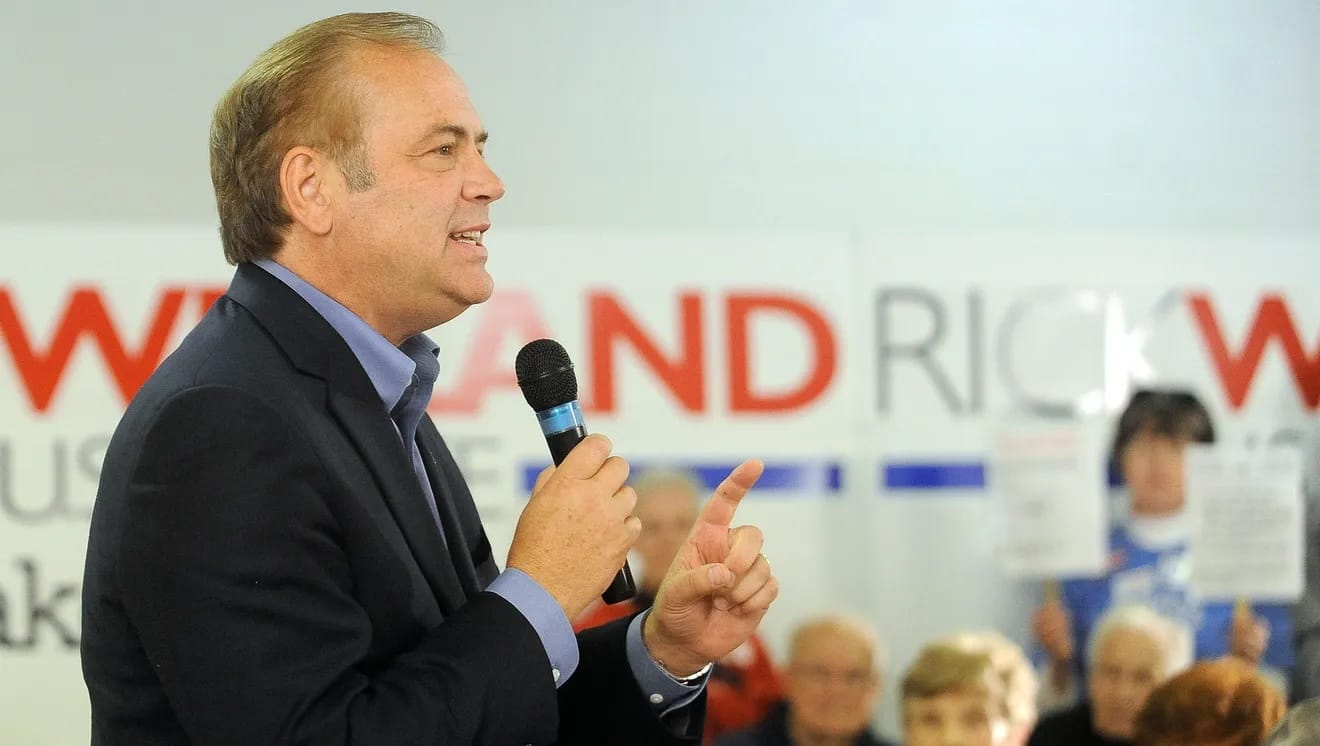
A November 2023 poll of registered voters co-sponsored by South Dakota News Watch showed a potentially close race, with 45.6% of respondents supporting the proposed constitutional amendment and 43.6% opposed.
Rep. Jon Hansen, R-Dell Rapids, who serves as vice president of South Dakota Right to Life and co-chair of the Life Defense Fund, viewed those results as a positive for the anti-abortion movement.
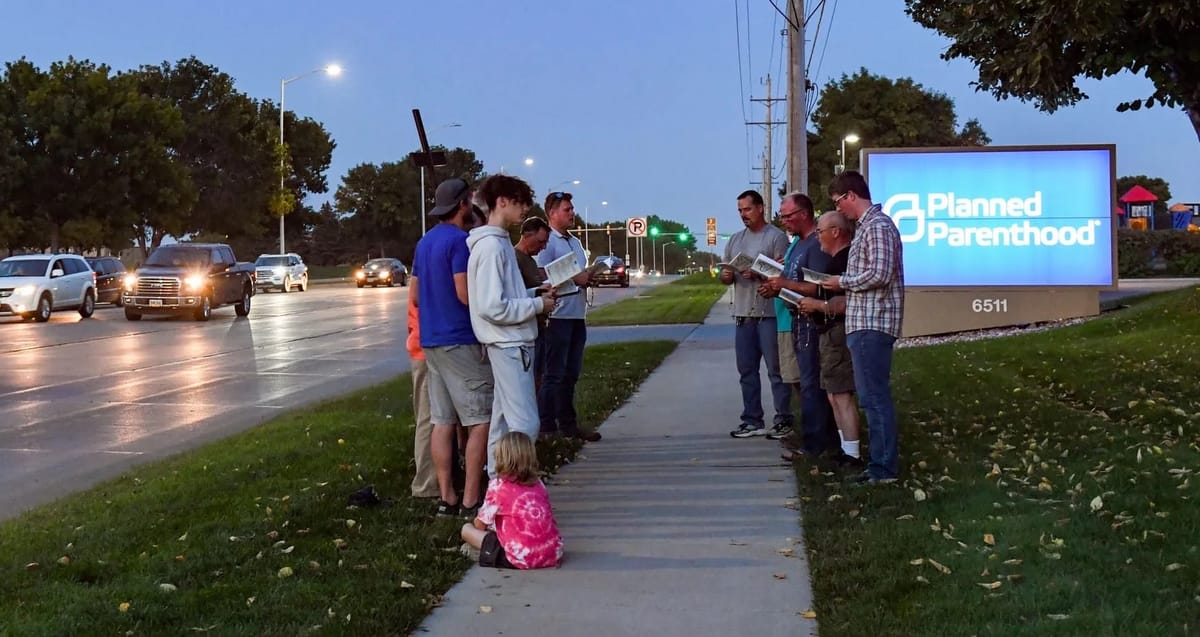
“This poll makes clear that the majority of South Dakotans do not support the extreme abortion amendment, including the majority of women who have decided to oppose it,” Hansen said in an emailed statement to News Watch after the poll was released.
Grocery tax repeal
Dakotans for Health is also sponsoring an initiated measure to prohibit the state from collecting sales tax on "anything sold for human consumption, except alcoholic beverages and prepared food."
The statewide poll in November co-sponsored by South Dakota News Watch showed that 61% of registered voters support the proposal, which would eliminate the 4.2% state sales tax on groceries. The measure would not affect the up to 2% sales tax on groceries charged by municipalities in South Dakota.

The proposal is staunchly opposed by the Republican-dominated Legislature, which approved a cut in the state’s general sales tax rate from 4.5% to 4.2% during the 2023 session that's due to expire in 2027.
The fiscal note for the grocery tax measure indicates it could reduce annual state sales tax receipts by $124 million. Opponents said that could stress the state's budget when combined with the rate change on general sales tax.
Weiland notes that Gov. Kristi Noem promised a grocery tax cut as part of her 2022 re-election campaign, a plan ultimately rejected by lawmakers. The governor took the rare step of testifying for her grocery tax repeal bill during the 2023 session, insisting that the budget was strong enough to absorb lost revenue and that voters wanted the tax repealed.
“She’s taken a lot of wind out of the sails of the opposition,” said Weiland, who said his group has collected more than 20,000 signatures for the measure. “She has made it clear that this will not be a financial burden and that it's something that the people want.”
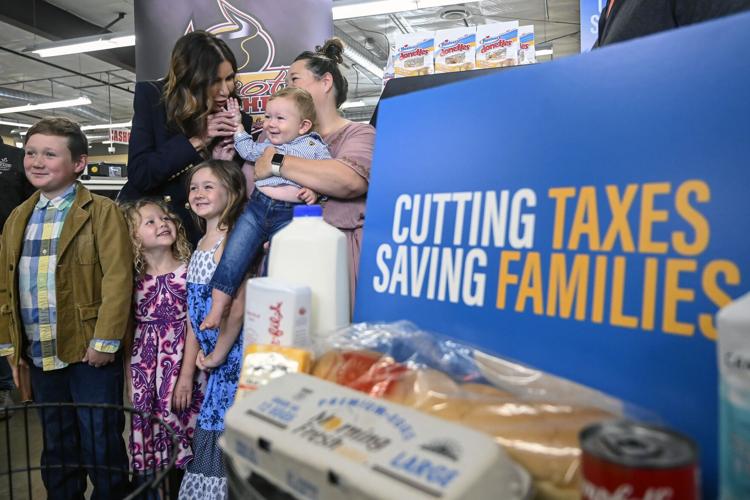
Jim Terwilliger, Noem’s top budget official as commissioner of the Bureau of Finance and Management, told News Watch that Noem doesn’t support the ballot initiative because of concerns about the wording.
He added that the governor “still believes a repeal of the grocery tax is the best tax relief for South Dakota families if it is done in a responsible manner,” though she didn’t mention the repeal in her budget message or State of the State address as part of the 2024 session.
Too close to call at the moment
Marijuana legalization
Two pot-related measures were approved for circulation: one to legalize the “possession, use and distribution of marijuana" for recreational use and another to repeal South Dakota’s medical marijuana program.
Neither sponsor responded to interview requests from News Watch or provided estimates of signature totals. Of the two, the initiated measure to legalize recreational pot is considered a viable contender to make the ballot.
Petitions for the cause have become more visible in recent days at signature gathering sites such as the Minnehaha County Administration Building.
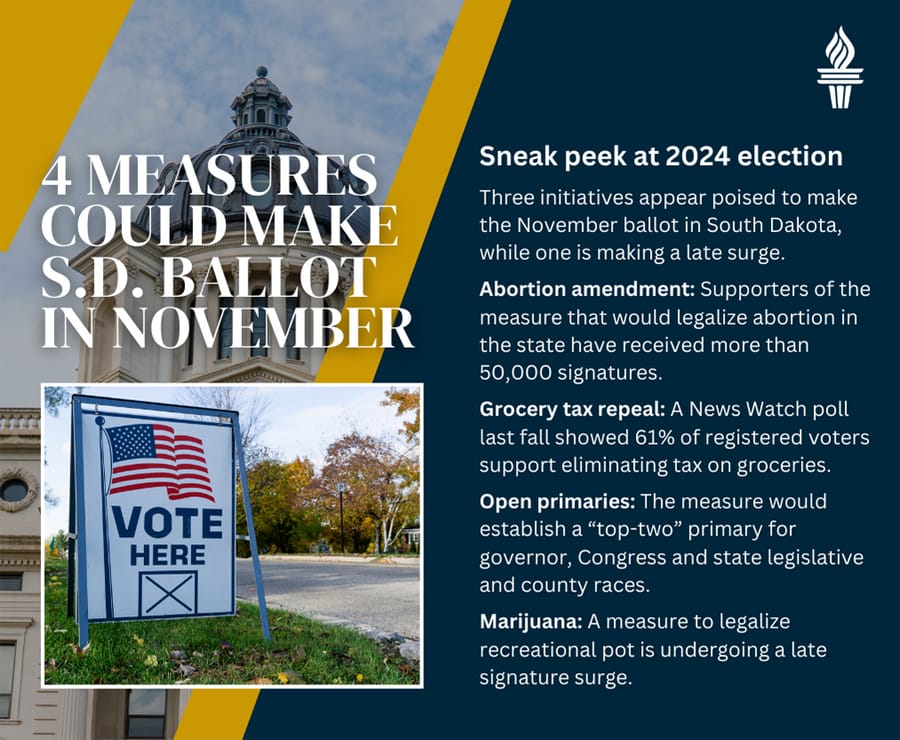
There's plenty of recent history with this issue. South Dakotans rejected an effort to legalize recreational pot in 2022, sending Initiated Measure 27 to defeat with 53% of voters against it.
That signaled a reversal from 2020, when pro-legalization Amendment A passed with 54% of the vote, clearing the way for recreational marijuana to hit the market. Medicinal pot was also approved by voters that year in an initiated measure.
Noem’s administration challenged the recreational marijuana amendment, saying it violated the state’s requirement that constitutional amendments deal with just one subject. That argument prevailed in a 4-1 decision at the South Dakota Supreme Court.
Not ready this time around
Protection of ballot measures
A proposed constitutional amendment that would prohibit the Legislature from repealing or amending voter-passed measures for at least seven years won’t see the ballot in 2024.
Sponsor Brian Bengs, who ran for U.S. Senate as a Democrat in 2022, told News Watch that his group is “not aggressively gathering additional signatures" at the moment. He added that the petition effort could re-emerge for 2026 or later.
The Initiated Measures Protection Amendment was conceived as a means of preventing state legislators from trying to thwart the will of voters.
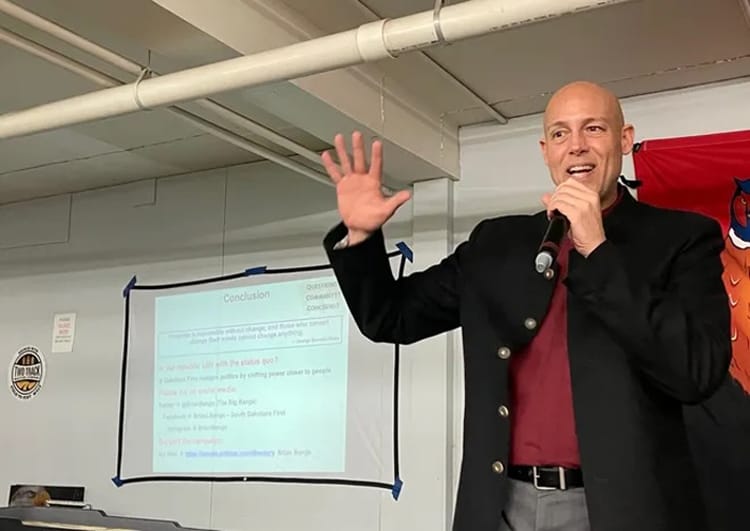
Bengs said his group collected “many thousands of signatures” but encountered people who incorrectly concluded that the measure was connected to the proposed abortion amendment.
“To preclude such confusion and increase the chance that each initiative is objectively assessed by voters on its own merit, we have transitioned to a passive approach to signature collection,” said Bengs.
South Dakota Legislature term limits
State Sen. Brent Hoffman, R-Hartford, did not provide a specific update for how many signatures his group has collected for the proposed amendment that would limit state legislators to eight years in each chamber or a maximum total of 16 years.

“Since I’ve been focused on service in the Legislature, our statewide team of volunteers will wait until the end of the session to release data or a statement,” Hoffman told News Watch.
That period of inactivity, with the deadline looming May 7, points to a steep uphill climb for the measure to make the ballot.
South Dakota 2024 election schedule
South Dakotans will vote on the ballot issues in the Nov. 5 general election.
Statewide races in the June 4 primary election include a Republican race for U.S. House of Representatives between incumbent Rep. Dusty Johnson and challenger Justin McNeal and a Democratic primary between Zach Kovach and Bert Olson. Republican Kristie Fiegen, chair of the Public Utilities Commission, also is up for re-election.
Here are key dates in this year's election schedule:
- April 19: Absentee voting begins for primary election
- May 7: Ballot measure deadline
- May 20: Voter registration deadline for primary election
- June 4: Primary election
- Sept. 20: Absentee voting begins for general election
- Oct. 21: Voter registration deadline for general election
- Nov. 5: General election



